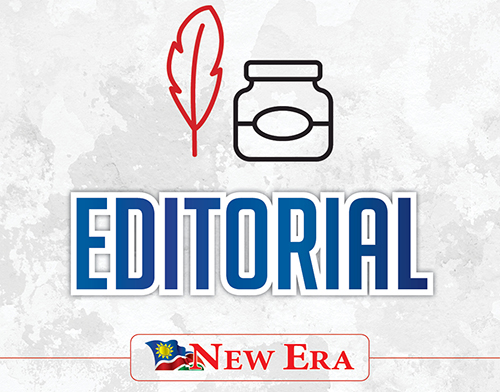Before lightning strikes, it gives no warning. The same can be said about a coup d’etat or military takeover of a state.
Those in political office appear untouchable, protected by high walls and gunmen until reality kicks in that power is indeed perishable.
This week, a group of military officers seized power in Gabon, shortly after incumbent president Ali Bongo Ondimba was announced winner of the election.
Bongo was going to run the country for a third term. “We’re putting an end to the regime in place,” the soldiers said on TV.
Bongo, a man born into opulence, was pleading for help in a widely circulated clip while under house arrest.
The sad reality is that while Gabon is the fourth-largest oil producer in sub-Saharan Africa, a third of its population lives below the poverty line.
One particular source of frustration lies in the high levels of corruption: the country ranks 136th in Transparency International’s Corruption Perceptions Index.
The ejected leader, his family and those within his tight-knit circle, swim in milk and honey.
In the last few months, various military coups have been recorded in Africa.
But that is not the bone of contention.
The question is whether military coups are solutions to Africa’s leadership crises?
Is any country immune to a military takeover? What lessons can be drawn from these takeovers?
A closer analysis of the three military takeovers reveals that those in power had either overstayed their welcome, used public office to enrich themselves and their cronies, or placed foreign interests ahead of their respective nations.
This, among other reasons, pushed the populaces to the edge, leaving them with no option but to revolt.
Even though the majority of the citizens did not partake in the coups physically, as they were operations birthed and executed by the militaries, without blood being shed, they embraced the takeovers with optimism.
These coups were seen by ordinary men and women of those countries as in the best interest of their nation, as former liberators had become the new oppressors or worse.
The coups point to a nexus for a truly geopolitical moment for Africans: a time when the United States, Russia, France and China became less straightaway important than Africans themselves.
This is indispensable for the future that Africans increasingly take charge of their processes, creating their laws, negotiating extraction of their resources on their terms, establishing their guardrails and brokering their own diplomatic, as well as – where need be – military solutions.
One of Africa’s founding fathers Kwame Nkrumah once said: “African countries won’t begin to have meaningful sovereignty and perhaps not be very consequential states at all until they become the stewards and custodians of their regions”.
It is encouraging when Namibia’s leaders, including President Hage Geingob, drive the narrative that it is against the country’s interest to export unprocessed mineral ore.
The rhetoric comes at the back of June’s decision for Namibia to ban the export of unprocessed essential minerals, such as crushed lithium ore, cobalt and rare earth metals, in a bid to maximise returns from its natural resources.
A report on food insecurity, released this week, covering July and September, indicates that 579 000 people in Namibia or 22% of the population face high levels of acute food insecurity and require urgent action to reduce food gaps and protect livelihoods.
The report came a few days after a story, published in the New Era, about hunger and poverty pushing a destitute Ovatjimba family in Otjikojo, a village some 25km west of Okangwati in the Kunene region, into scavenging for goat skins to feed themselves.
This is a harsh reminder that there are faces behind these statistics.
With Namibia’s youth unemployment rate estimated to be around 50% and leaders agreeing that a crisis is a ticking time bomb, it becomes apparent that things cannot continue as usual.
The poor turnout at national events and elections should also be used as yardsticks to inform decision-makers that, indeed, people do not eat slogans and well-polished development plans.
They must translate into meaningful solutions that put bread and butter on the tables of the destitute masses.


